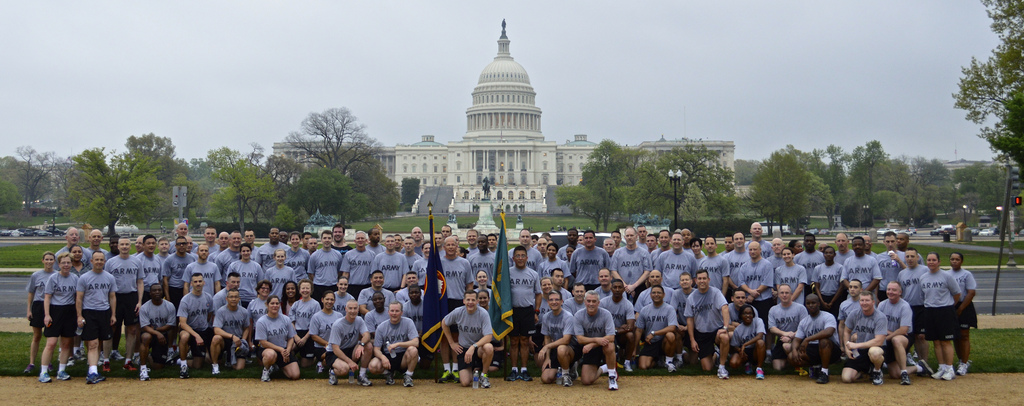Army National Guard troops train for their 2010 deployment to Iraq.
Ever since the post-9/11 wars put pressure on the U.S. Army for more troops, its reserve forces have effectively become part of the operational Army, and not confined to their traditional role as a so-called “strategic reserve.”
Now that the post-9/11 wars are almost finished, should the Army Reserve and Army National Guard go back to being a strategic reserve? In other words, put back on the shelf and confined largely to training and dealing with natural disasters?
Common sense might suggest that should happen.
But that would make you a taxpayer instead of a reserve general.
Being part of the operational Army keeps the reserve units and their generals busy, and keeps the money flowing. The topic came up at Wednesday’s hearing of the House Armed Services Committee’s readiness subcommittee.
“Do you foresee the Guard and Reserve going from an operational force back to a strategic reserve?” asked Rep. Steve Palazzo, R-Miss., an Army National Guard member.
“We cannot afford to lose what we have gained as a result of 11 years of experience in the battlefield,” responded Major General Luis Visot, deputy commanding general for operations for the Army Reserve. “We hope that throughout the years, with the support from the Congress, and that we’ll continue to do that and not go back to a strategic reserve.”
“The Army has no intent, in my professional opinion, to returning us to a strategic reserve,” added Brigadier General Walter Fountain, acting deputy director of the Army National Guard. “It was a significant investment for us to make the transition from a strategic reserve to a full partner and an operational force. That is a function of resourcing, and the resourcing is where we will depend on your assistance to see that we do not return to that point.”
Did you catch the generals’ most important point: we will depend on your assistance and with the support from the Congress. They’re asking lawmakers to do what the Pentagon may not want done.
The issue looms big enough that Fountain made it part of his opening statement:
This historic and essential level of readiness as an operational force is at risk due to budgetary uncertainty. If continued, it will erode current levels of readiness and potentially return the Army Guard to a strategic reserve…If there is one message I could leave you with today, it’s now is not a time to put the Army National Guard back on the shelf and allow us to return to the strategic reserve.
And he returned to it a third time later in the hearing:
From our perspective we have, through investment from this great country, have transitioned from an operational strategic reserve to an operational force at a great cost. And to lose that investment to us would be buying high and selling low.
But such an investment strategy only makes sense if there’s a reason to keep the future Army as robust as the one that helped wage the wars in Afghanistan and Iraq.
“They want to stay part of the operational force instead of the strategic reserve because it means they’ll get much greater resources,” says Lawrence Korb, the Pentagon’s top manpower civilian during the Reagan Administration, and now at the Center for American Progress think tank. The Pentagon relied on the reserve forces during the post-9/11 wars, he adds, so that it wouldn’t have to return to the draft to get sufficient troops to fight them. Keeping the reserves in an operational status, Korb also says, would increase pressure for deeper cuts in the active-duty Army.
But until, and only if, that happens, the bottom line is striking: by making the reserves part of the operational force to help wage those wars, the nation essentially more than doubled the size of its operational Army, from 480,000 on 9/11 to 1.1 million today (541,000 active, 206,000 Reserve and 356,000 Guard).
Now the reservists want to make that change permanent.



